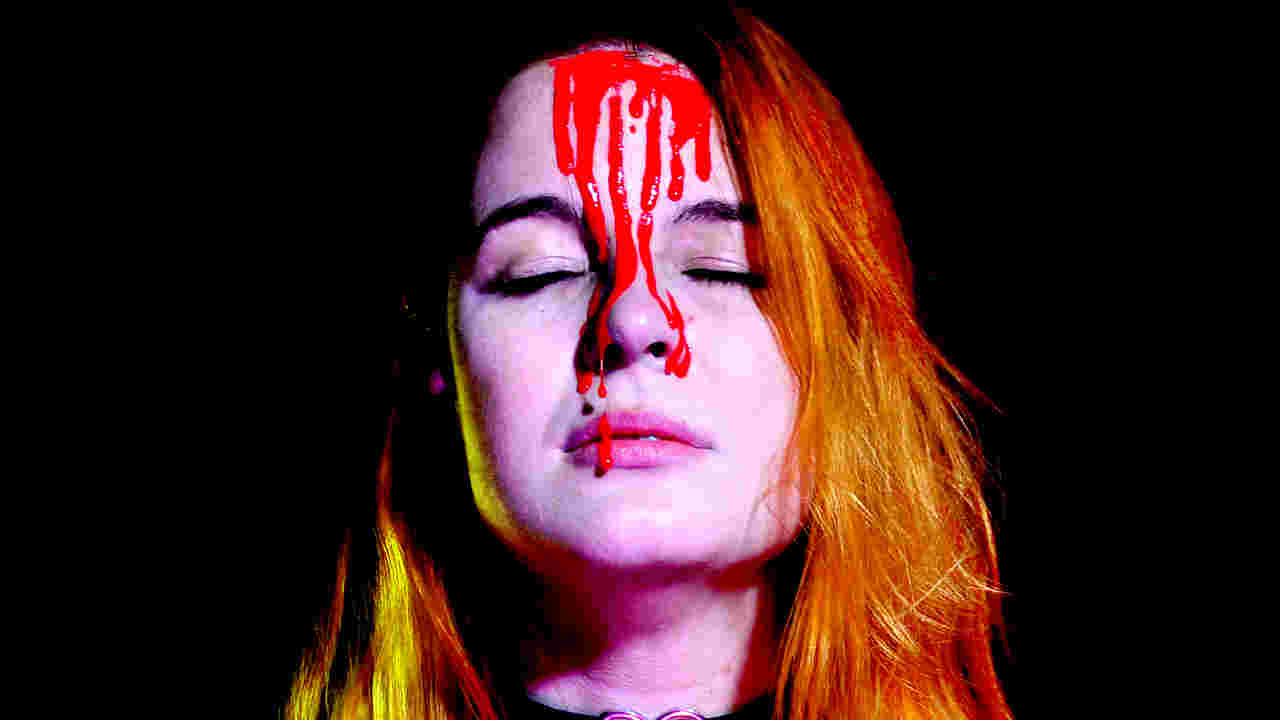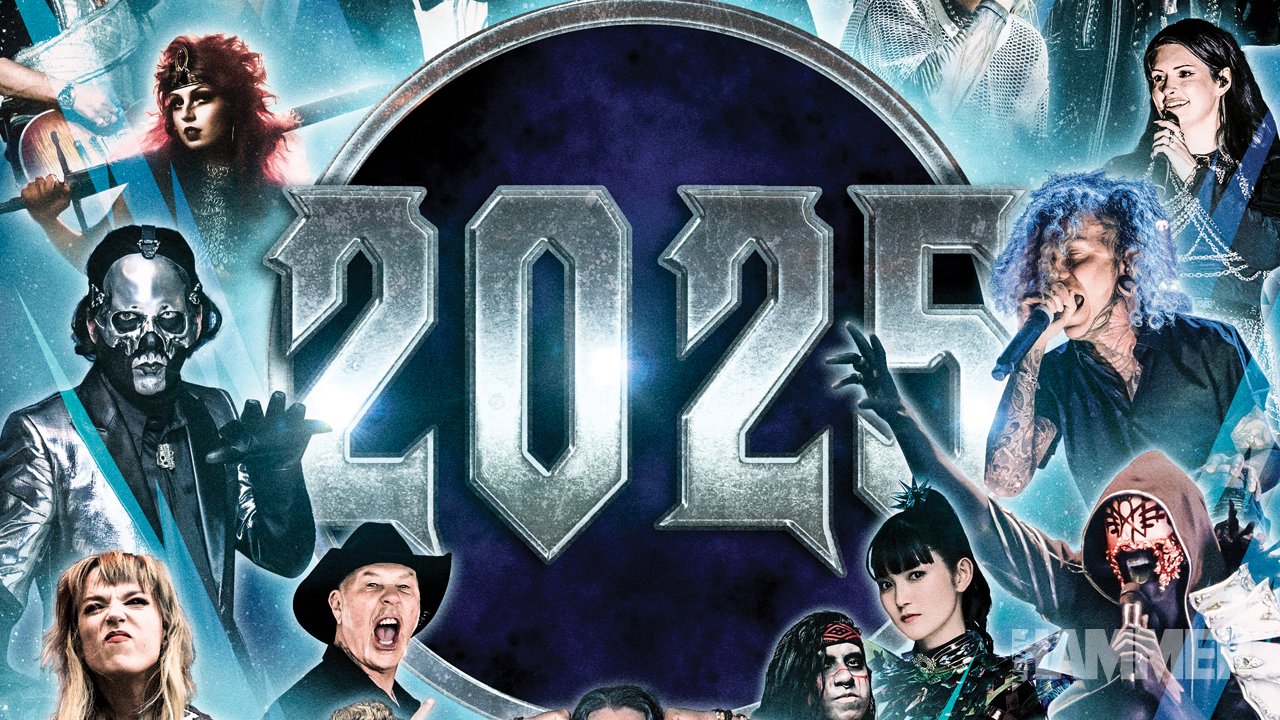Svalbard’s Serena Cherry: “Metal’s not a utopia. If your face doesn’t fit, it’s hard to get attention”
The gospel according to Svalbard/Noctule frontwoman Serena Cherry

No one has their finger on the pulse of modern metal quite like Serena Cherry. The lead singer and guitarist of post-hardcore dissidents Svalbard writes songs savaging the patriarchy, examining topics from harassment at gigs to female objectification, and she’s out to create a safer, fairer and more inclusive scene for everyone. In May, she will release a Skyrim-inspired black metal solo album, Wretched Abyss, under the name Noctule.

Female representation can be life-changing
“A big thing for me in figuring out how to do vocals was seeing other women do it. I saw Arch Enemy at Download in 2003. Angela Gossow came out and did this mighty roar, and it was one of the first times I had ever heard a woman do that. It struck something in me and made me realise I can do that too. If I hadn’t seen Angela or bands like My Ruin, I never would have thought to have tried it. I never would have thought my voice was capable of growling that low. I learned about the power of female representation in metal and how it can inspire you. After I saw Arch Enemy at Download I went home and tried screaming into a pillow! Ha ha ha!”
Musicians should work in music shops
“I worked in a guitar shop from age 15 to 22. My lesson to all teenagers out there reading this would be, ‘If you want to play guitar and you want to get good, get work experience in a guitar shop.’ Make yourself super-useful so they keep you on. It gives you the time to just sit and play. I got to use so many guitars and I learned things like how my action will affect a guitar’s playability. It was how I discovered effects pedals, which are a big part of my sound.”
What works? Teamwork!
“My first band was a black metal band. In classic black metal DIY style, I wrote and recorded three albums by myself. I can play the drums, so I played all the instruments and wrote all the music. I was 15 years old. Over the course of a couple years, I did those three albums and then I put a live band together. It consisted of a now-friend on guitar, who I met after putting an ad up, and a revolving door of other guitarists. I did bass and vocals and I had the drummer from a death metal band called Amputated. The thing I learned from starting out in a band where I dictated is that sometimes it’s much more fun to be creative with other people. It can be better than walking into a practice room and going, ‘This is the song, this is how we play it, do as I say.’ I quickly learned that that’s not the most rewarding creative experience.”
Singers should go swimming
“The biggest thing for improving my vocal technique is going swimming regularly. The difference is so noticeable. It teaches you to control your breathing so you’ll have so much lung power for vocals. I have so much more control now than I did five years ago.”
Music’s not a meritocracy
“There’s a lot of misconception about women’s disadvantages in music. Metal’s not a utopia; if your face doesn’t fit the mould that’s already been made, it’s a lot harder to get the attention of bookers and agencies. The public seems to assume a festival line-up is meritocratic – that if you’re good enough you’ll get on the main stage of a festival. In actuality, it’s to do with what booking agency you’re with, and things to do with money and advertising.”
Mental health really is a constant battle
“Depression never really goes away. It either comes to the front of your brain or hangs back, but it’s always there. Having gone through it, I know it sounds cliché, I feel more fearless now. You can bounce back, but not quite in the way people expect. One thing I learned is the patience you need to deal with depression and realising I’m not gonna wake up and feel amazing straight away. If you’re having a bad spell, you need to slow down because if you put pressure on yourself to feel happy all the time, you’re gonna have an unattainable goal and feel like a failure. Instead, just focus on, ‘Did I get out of bed today?’, ‘Did I shower today?’, or ‘Did I eat today?’ Celebrate each little action you take throughout the day.”
Sign up below to get the latest from Metal Hammer, plus exclusive special offers, direct to your inbox!
Social media is toxic
“Something I’ve learnt in the last year is that sometimes it’s wise, depending on your mental health, to be less outspoken on social media. When I was suffering from depression was also when I was studying for a PhD on the representation of women in metal. If the booker of Download assumes women can’t play, it’s gonna be a lot harder to get the opportunity just for him to hear you than if you were a guy [Download’s Andy Copping told The Guardian in 2015: “There’s no shortage of women coming to our festival, but they seem to like watching bands more than being in them. They just haven’t felt inspired enough to pick up a guitar or be the singer of a rock band”]. I spoke out about the issue of representation of women at Download and made my own poster, which featured a line-up with a woman in every band. It was to show a) that it could be done and b) how great it’d be! But, I did get a lot of hatred back, a lot of, ‘You’re a bitter woman playing the sexism card.’ When you’re suffering from depression at the same time, that’s a bad combination. That tweet marked a turning point for me. I spoke to a successful YouTuber and they told me to take a step back: ‘Let the flames die down and stop reading the comments.’”
There’s always a community that will welcome you
“I’m a staff member at a YouTube channel called CoasterForce. We have 1.2 million subscribers. I do most of their social media and we travel around the world to different theme parks to film content all about roller coasters. When I first joined, I signed up to their forums, more than 10 years ago. I knew I was a roller coaster enthusiast but I was worried about sharing that passion with other people because I didn’t know what they’d be like or if I’d fit in. When I finally made that plunge and started posting and going to meet-ups, I made the best friends I’ve ever had in my life. One life lesson from that is, if you have something that makes you happy, no matter how weird, pursue it! Dive in and meet likeminded people. I’ve travelled the world with these people and it’s been a huge confidence boost. When I didn’t feel welcome in the metal community, I felt very welcomed by the CoasterForce community.”
A good label can really work wonders
“Going from Holy Roar Records to Church Road, I learned that the people you work with at your label, they’re more than friends. These are people that can really pull through for you when times get tough. I realised the value of our band not only to us but also to Justine [Jones] and Sammy [Urwin] at Church Road. The minute the allegations broke [of Holy Roar founder Alex Fitzpatrick committing sexual assault, which he denies], we were on a call trying to figure out what to do. The amount of ideas and problem-solving from Justine, Sammy and Becky [Laverty, Svalbard’s PR] put into allowing our When I Die… album to happen showed me just how many people care about this band. The allegations and the disbanding put a lot of people’s lives in turmoil – Justine left her job there, which was so powerful for me.”
Learn a martial art
“Learning jiu jitsu is about your physical abilities and strength, which are things I didn’t pay that much attention to. It taught me to really listen to my body. It gave me a whole new level of confidence when I started and I really miss it. It’s just great to try something new. I’d never considered trying a martial art before but I think you’ve got to be open no matter what age you are. Once COVID’s over, go down your local gym and give stuff a go! You never know what you’ll like. I really enjoy the physical tension and release in jiu jitsu. What drew me to it is the real-life application, say if someone tries to mug you or attack you. You then have the skills to defend yourself.”
Published in Metal Hammer #346

Louder’s resident Gojira obsessive was still at uni when he joined the team in 2017. Since then, Matt’s become a regular in Metal Hammer and Prog, at his happiest when interviewing the most forward-thinking artists heavy music can muster. He’s got bylines in The Guardian, The Telegraph, The Independent, NME and many others, too. When he’s not writing, you’ll probably find him skydiving, scuba diving or coasteering.
